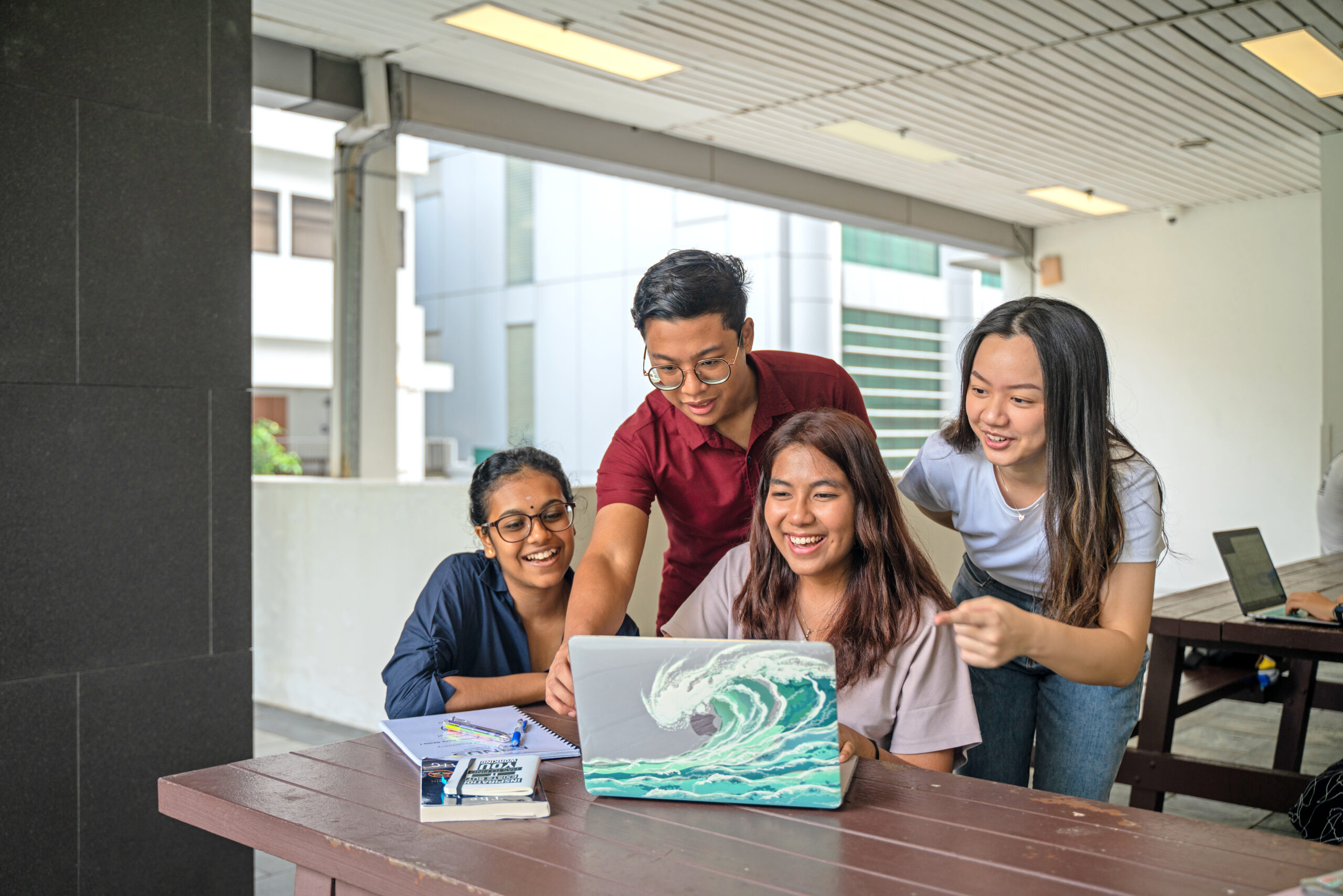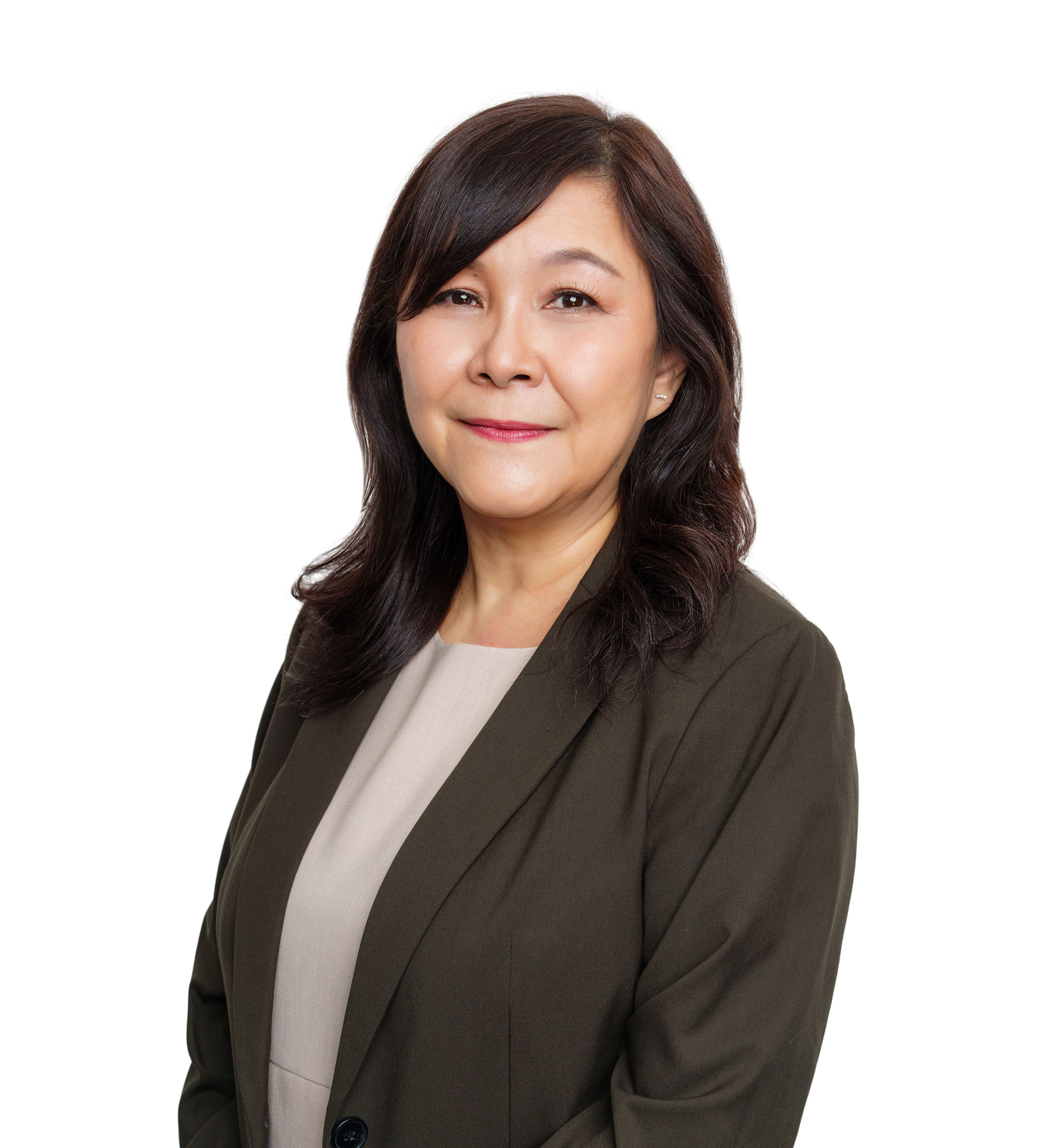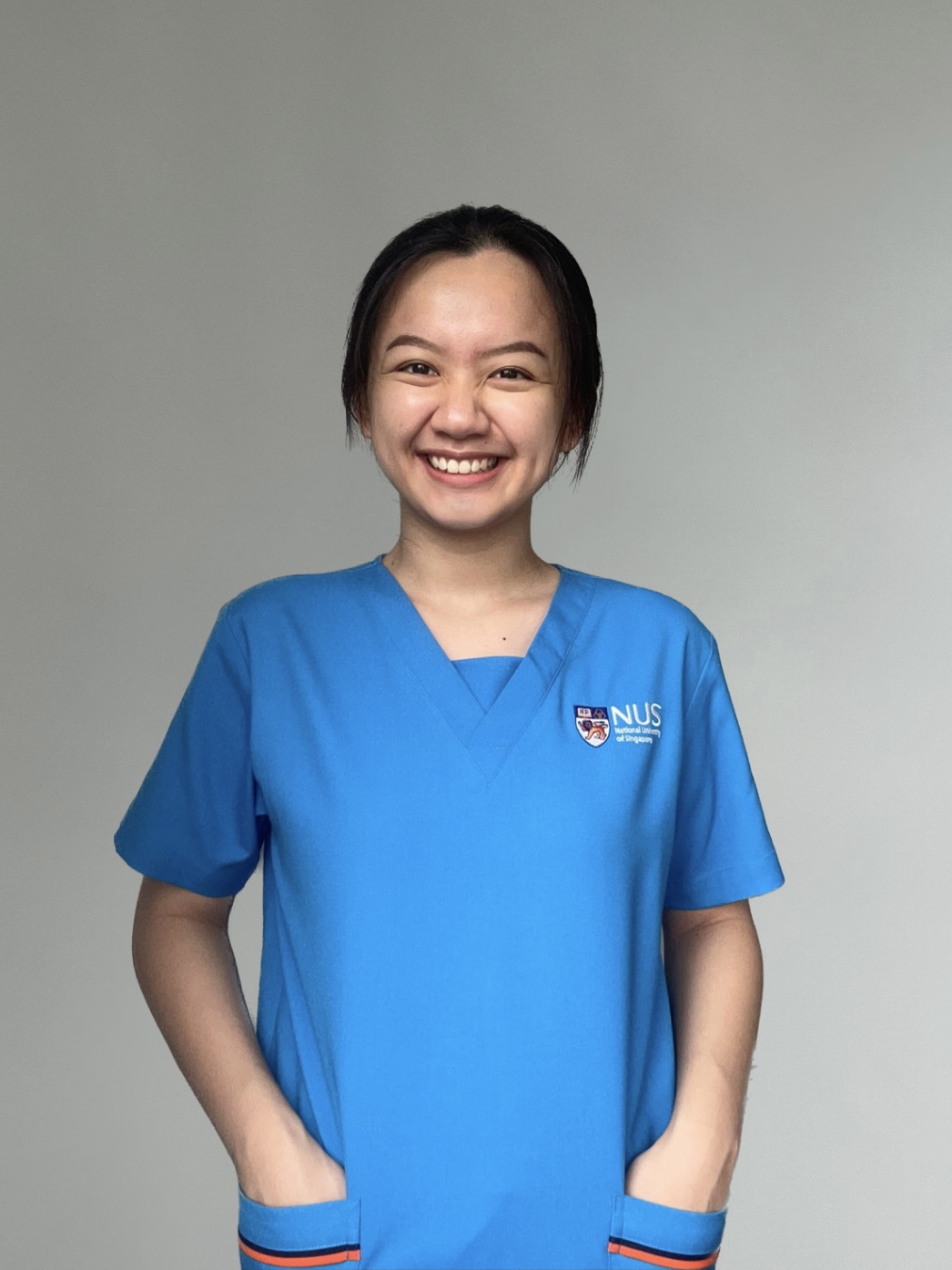
Starting August 2023, students enrolled at the Alice Lee Centre for Nursing Studies (NUS Nursing), National University of Singapore Yong Loo Lin School of Medicine can look forward to more opportunities to learn with peers from Dentistry, Medicine and Pharmacy.
In line with Singapore’s new ‘Healthier SG’ initiative which focuses on integrated and preventive care, a new Common Curriculum for Healthcare Professional Education has been introduced. But what exactly is in the common curriculum, and how will it better prepare future doctors, nurses, dentists and pharmacists for challenges they will face?
A/Prof Lydia Lau, Director of Education, NUS Nursing, and NUS Nursing Year 2 students, Deiondre Tan and Muhammad Amir Bin Mohamed Imran, discussed these burning questions and more.
#1. The Common Curriculum for Healthcare Professional Education is made up of five courses.
To be completed in the first two years of the BSc Nursing undergraduate degree, the five courses in the common curriculum complement the existing NUS Nursing curriculum and encourage interdisciplinary learning. The duration of each course is 13 weeks.
Year 1 Semester 1 – Social and Behavioural Determinants of Health
This course offers an opportunity for students to explore and gain a holistic understanding of what contributes to health. A/Prof Lau explained, “Health is not the absence of disease, it is also the physical, social and mental well-being of a person. That is why in this course we don’t just look at medical conditions, but we also examine influencing factors such as lifestyle, social network, physical and even political environments.”
Year 1 Semester 2 – Professional Practice 1: The Foundations of Health Professionalism
This course covers what it takes to become a patient-centric healthcare professional. “Effective communication is a cornerstone of good healthcare. It is instrumental for multidisciplinary teams to work well together, and patients to be cooperative and committed to care plans. We hope to instil in students the importance of compassion and clarity when communicating with patients and other professionals,” A/Prof Lau said.
Year 1 Semester 2 – Data Literacy for Healthcare
The students will learn about evidence-based practice through the use of data for decision-making. A/Prof Lau said, “It is not uncommon to confront uncertainties in healthcare settings. The question is, under such circumstances, how can one arrive at an optimal decision? In this course, we teach students how to analyse the data they have on hand, to aid them in making a well-informed decision, relevant to their clinical practice.”
Year 2 – Professional Practice 2: Basic Skills in Health Professionalism
An extension to Professional Practice 1, this course dives deep into the ethical aspects of healthcare. A/Prof Lau shared, “Ethical dilemma can be very real and personal in healthcare. Just to name two examples—what should you do when industry practice does not align with your personal beliefs, or how do you know your decision is objective and not a result of your personal bias? We prepare our students to answer these questions in this course.”
Year 2 – Digital Literacy for Healthcare
Basing the curriculum on the healthcare context, this course equips students with skills in computational thinking, data science, artificial intelligence (AI), and machine learning. “As we know, technology is moving very fast. More importantly, technologies such as tech wearables and AI offer opportunities for better healthcare, so it’s important to leverage them to provide better care standards for patients. This course will teach our students how to use advanced technologies in today’s healthcare landscape,” A/Prof Lau explained.
#2. The immersive Longitudinal Patient Experience is part of the interdisciplinary experiential learning and a feature of the common curriculum.
In addition to the five courses, students will also form multidisciplinary teams of eight to nine persons and go through a year-long Longitudinal Patient Experience (LPE) together. Each team will also be assigned a clinical mentor who will accompany them on visits to the patient’s place.
Sharing her LPE experience, Deiondre said, “I truly enjoyed the patient interaction LPE offers. Although Nursing focuses on holistic care of the patient, it is restricted to the hospital setting. In LPE, we get to experience and find out our patient’s perspectives beyond the hospital setting by engaging them within their community.”
A/Prof Lau elaborated, “Actually, NUS Nursing and Medicine have been running the LPE programme since 2014, but this will be the first time the four healthcare disciplines (Nursing, Medicine, Dentistry and Pharmacy) will be doing it together, and in a formalised and structured manner. The LPE is an integral component of the common curriculum because it provides opportunities for students to apply the knowledge learned in classes, experience patients in their homes and the community, and put in practice interdisciplinary teamwork and leadership. So LPE ties in perfectly with other common curriculum courses.”
#3. Different courses will be conducted using different formats.
Other than LPE, which takes place in the community, various formats are adopted for each of the other five courses. For example, Social and Behavioural Determinants of Health is conducted virtually while Professional Practice 1 and 2 will be taught in person.
“When deciding on the format and method of instruction for the different courses, we take various factors into consideration—from class sizes to optimal learning environment, etc. In addition, we planned it such that students in the Social and Behavioural Determinants of Health course would go on to do their LPE together. These all meant that we had to coordinate schedules among the four disciplines to ensure that there is no timetable clash,” said A/Prof Lau.
Students who went through the pilot run appreciated the meticulous planning. “The Social and Behavioural Determinants of Health course was a good prerequisite for the LPE as it taught us about working with people from different disciplines. Additionally, the course provided us with knowledge on the social determinants of health which we later saw in our patients during the LPE project and how they adapted to living with their chronic illnesses,” said Amir.
#4. Students enrolled in the common curriculum will take the same number of courses as their seniors.
“For the common curriculum to work synergistically with other NUS Nursing courses, we had to review our existing curriculum as a whole and rationalise which ones could be mapped to the new common curriculum or folded into other courses. Ultimately, the aim is to make sure that we are not unnecessarily increasing our students’ workload, they’ll have leeway for their other electives, and they still get to learn what they need to perform their jobs as nurses,” A/Prof Lau added.
“I am happy to share that we managed to achieve all our goals—and a bit more. This ‘more’ stems from the opportunity to learn alongside other healthcare disciplines. For example, insights gleaned from previous NUS Nursing communication curriculum centred around Nursing because it is curated for nurses. But under the Professional Practice courses, students get to learn perspectives and approaches of other disciplines. This learning is valuable.”

#5. Some students will only be taking three courses.
Students enrolled into NUS Nursing typically come from three tracks—‘A’ Levels, Nursing diploma and career conversion pathways. Notably, students from the ‘A’ Level track complete their course in three years while others finish theirs in two. Given the different study duration, only students from the ‘A’ Level track will complete all five courses in the common curriculum. Diploma upgraders and career conversion students will only need to do Social and Behavioural Determinants of Health and Professional Practice 1 and 2.
However, all students—regardless of their tracks—take part in the LPE. A/Prof Lau said, “This will be the first time our students from the Nursing diploma and career conversion tracks join us for LPE. Given that they are older with more life and Nursing experience, we foresee that their interaction with other students could be enriching and rewarding for both themselves and the younger students.”
#6. NUS Nursing students will get to collaborate with students from Dentistry, Medicine and Pharmacy and learn beyond their chosen specialisation.
“Collaboration has always been an important tenet of healthcare—among different healthcare professionals as well as with patients and their caregivers. With the ‘Healthier SG’ vision and its emphasis on total well-being, it has become even more important for healthcare professionals to be able to understand one another’s viewpoints, respect one another and work together. The common curriculum provides such a platform—paving the way for more cohesive and synergistic healthcare,” A/Prof Lau said. “Our students who went through the pilot run attest to that.”
“I enjoyed learning together with students from Pharmacy, Medicine and Dentistry as it gave me the opportunity to understand their perspectives when we discussed healthcare issues in class and with our patient. Through the experience, it also made me realise my blind spots as a nurse and how other disciplines can help. Sometimes, we can help to save time and make the system more efficient if we redirect certain aspects of patient care to respective disciplines,” said Deiondre.
Amir agreed, “The common curriculum offers a whole new experience of learning how to provide integrated care with other health professions. Most Nursing courses focus on roles of nurses. With this course, we are able to understand the goals and priorities of other healthcare professionals and work with them to create better nursing care for the patients.”
Find out more about the NUS Common Curriculum for Health Professional Education here.





